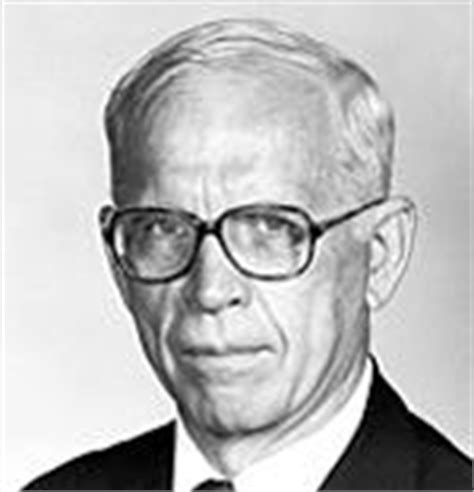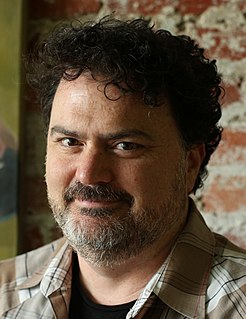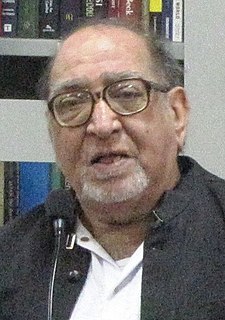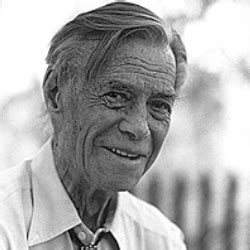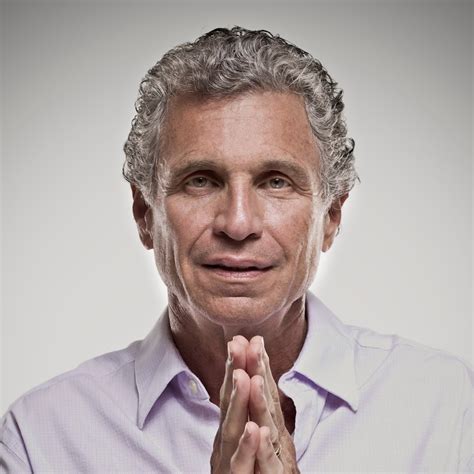Top 491 Sensory Deprivation Quotes & Sayings - Page 7
Explore popular Sensory Deprivation quotes.
Last updated on November 16, 2024.
Now let me be clear; millions of women around the world nurse their children beautifully for years without giving anybody else a hard time about it. Teat Nazis are a solely western upper-middle-class phenomenon occurring when highly ambitious women experience deprivation from outside modes of achievement.
Of all the systems of the body - neurological, cognitive, special, sensory - the cardiological system is the most sensitive and easily disturbed. The role of society must be to shelter these systems from infection and decay, or else the future of the human race is at stake. Like a summer fruit that is protected from insect invasion, bruising, and rot by the whole mechanism of modern farming; so must we protect the heart.
Normal people have an incredible lack of empathy. They have good emotional empathy, but they don't have much empathy for the autistic kid who is screaming at the baseball game because he can't stand the sensory overload. Or the autistic kid having a meltdown in the school cafeteria because there's too much stimulation.
If flies are a great model, they're a great model for flies. These animals, you know, they're not like us. We don't fly. We don't have a compound eye. I don't think we process sensory information the same way. The muscles that they use are just incredibly much more sophisticated and interesting than the muscles we use.
Hunger is the worst form of deprivation of a human being. Although inability to access food is the immediate cause of hunger, the real cause in most of the incidents of hunger is lack of ability to pay for food. If we are looking for ways to end hunger then we should be looking at ways to ensure a reasonable level of income for all
Labor produces marvels for the rich but it produces deprivation for the worker. It produces palaces, but hovels for the worker. It produces beauty, but deformity for the worker. It replaces labor by machines, but it throws one section of the workers back to barbaric labor, and it turns the remainder into machines.
The left hemisphere is very interested in language; it communicates in words, it has a past, a present, and a future; it has a time component and it's all about details. The right hemisphere is more about the right now-right here experience where everything is an enormous collage of all the sensory systems flooding into our brains.
I usually say the aim of life is to be happy. Our existence is based on hope. Our life is rooted in the opportunity to be happy, not necessarily wealthy, but happy within our own minds. If we only indulge in sensory pleasure, we'll be little different from animals. In fact, we have this marvellous brain and intelligence; we must learn to use it.
Predating the Internet and predating videos, you had an active imagination. You would hear sounds and then get mental pictures of what these sounds felt like to you. It engaged you and made you more invested in it. It made you want to get tickets to the show, buy the album, put the poster on the wall. Now it's sensory overload.
I am unable, when I turn to myself, to recognize any of my faculties or my capacities. The inner sensation which I have of myself informs me that I am, that I think, that I will, that I have sensory awareness, that I suffer, and so on; but it provides me with no knowledge whatever of what I am - of the nature of my thought, my sensations, my passions, or my pain - or the mutual relations that obtain between all these things ... I have no idea whatever of my soul.
I moved down the street like a cloud of awareness following a body that seemed simultaneously familiar and foreign. There was an incomprehensible attachment to that body, although it no longer felt like "mine". It continued to send out signals of its sensory perception, yet how or where those signals wwere being received was beyond comprehension.
Tiffany knew what the problem was immediately. She'd seen it before, at birthday parties. Her brother was suffering from tragic sweet deprivation. Yes, he was surrounded by sweets. But the moment he took any sweet at all, said his sugar-addled brain, that meant he was not taking all the rest. And there were so many sweets he'd never be able to eat them all. It was too much to cope with. The only solution was to burst into tears.
The only way of expressing emotion in the form of art is by finding an "objective correlative"; in other words, a set of objects, a situation, a chain of events which shall be the formula for that particular emotion; such that when the external facts, which must terminate in sensory experience, are given, the emotion is immediately evoked.
The global phenomenon of poverty tourism - or 'poorism' - has become increasingly popular during the past few years. Tourists pay to be guided through the favelas of Brazil and the shantytowns of South Africa. The recently opened Los Angeles Gang Tour carries visitors through battle-scarred territories of urban violence and deprivation.
Each of us lives within the universe - the prison - of his own brain. Projecting from it are millions of fragile sensory nerve fibers, in groups uniquely adapted to sample the energetic states of the world around us: heat, light, force, and chemical composition. That is all we ever know of it directly; all else is logical inference.
The smells are very strong on 'Game of Thrones': the incense, the fire, the heat of all the burns. The smell of Lancel's Faith Militant cloth is very thick in my nostrils right now. And I think the warmth of it all: the hard work ethics, the ambiance, the temperature of the set. There are so many sensory memories of it, which will never leave me.
Faith is the commitment of one's consciousness to beliefs for which one has no sensory evidence or rational proof. When man rejects reason as his standard of judgement, only one alternative standard remains to him: his feelings. A mystic is a man who treats his feelings as tools of cognition. Faith is the equation of feelings with knowledge
After working with many nutritionists, reading books, and practicing trial and error on my own body, I have finally found a way to control my weight without deprivation. I call my program 'Somersizing,' and Somersizing is not a diet. Diet is a nasty four-letter word that conjures up negative thoughts of sacrifice and obsession and guilt.
I tell the kids that, even in a childhood marked by despair and deprivation, I knew that no matter what happened, I still had my family, or at least the remnants of a family ripped apart by divorce and then glued back together in various odd arrangements through a series of ill- advised remarriages. It was good to know I had a solid foundation.
[On Marilyn Monroe:] I think my response to her death was the common one: it came to me with the impact of a personal deprivation but I also felt it as I might a catastrophe in history or in nature; there was less in life, there was less of life, because she had ceased to exist. In her loss life itself had been injured.
We have a largely materialistic lifestyle characterized by a materialistic culture. However, this only provides us with temporary, sensory satisfaction, whereas long-term satisfaction is based not on the senses but on the mind. That’s where real tranquility is to be found. And peace of mind turns out to be a significant factor in our physical health too.
Here is an educational bombshell: Take from all of today's industrial nations all their industrial machinery and all their energy-distributing networks, and leave them all their ideologies, all their political leaders, and all their political organizations, and I can tell you that within six months, two billion people will die of starvation, having gone through great pain and deprivation along the way.
The recollections of an older man are different from those of a younger man. What seemed vital at forty may lose its significance at seventy. We manufacture stories, after all, from the fleeting sensory material that bombards us at every instant, a fragmented series of pictures, conversations, odors, and the touch of things and people. We delete most of it to live with some semblance of order, and the reshuffling of memory goes on until we die.
Those who take to guns could do so due to deprivation, suppression, or historical legacy. The Afghans have lived through violence for centuries, by the Mughals, the Russians, their own people, so they have always had to fight for freedom... we cannot take away the context. But they legitimised it by using jihad, a religious sanction, so they could be seen as mujahids, fighting for Allah. And you cannot say there is nothing concrete.
In the traditionally taught view of perception, data from the sensorium pours into the brain, works its way up the sensory hierarchy, and makes itself seen, heard, smelled, tasted, felt - "perceived." But a closer examination of the data suggests this is incorrect. The brain is properly thought of as a mostly closed system that runs on its own internally generated activity.
What Warcollier demonstrated is compatible with what modern cognitive neuroscience has learned about how visual images are constructed by the brain. It implies that telepathic perceptions bubble up into awareness from the unconscious and are probably processed in the brain in the same way that we generate images in dreams. And thus telepathic “images” are far less certain than sensory-driven images and subject to distortion.
I believe 3D is inevitable because it's about aligning our entertainment systems to our sensory system. We all have two eyes; we all see the world in 3D. And it's natural for us to want our entertainment in 3D as well. It's just getting the technology - it's really more the business model than the technology piece. We've solved the technology.
Quantum wellness isn’t about deprivation and it’s not about perfection. It is about pointing yourself in the direction of growth, training yourself to get comfortable with your highest potential, and then taking small steps to support that shift. It’s about showing up for yourself, day by day, and then one day finding that you’ve undergone a transformation.
The problem isn't materialism as such. Rather it is the underlying assumption that full satisfaction can arise from gratifying the senses alone. Unlike animals whose quest for happiness is restricted to survival and to the immediate gratification of sensory desires, we human beings have the capacity to experience happiness at a deeper level which, when achieved, can overwhelm unhappy experiences.
one way to keep people close to you is by not giving them enough. ... with people who give a lot of themselves, you sometimes lean back - but with people who give little you often lean forward, as if they're a spigot in the desert and you're the empty cup. It is the tropism of deprivation: We lean toward those who do not give.
For three million years we were hunter-gatherers, and it was through the evolutionary pressures of that way of life that a brain so adaptable and so creative eventually emerged. Today we stand with the brains of hunter-gatherers in our heads, looking out on a modern world made comfortable for some by the fruits of human inventiveness, and made miserable for others by the scandal of deprivation in the midst of plenty.
But the human body has an enormous capacity for adjusting to trying circumstances. I have found that one can bear the unbearable if one can keep one's spirits strong even when one's body is being tested. Strong convictions are the secret of surviving deprivation; your spirit can be full even when your stomach is empty.
As far as stimulus from the visual arts specifically, there is today in most of us a visual appetite that is hungry, that is acutely undernourished. One might go so far as to say that Protestants in particular suffer from a form of visual anorexia. It is not that there is a lack of visual stimuli, but rather a lack of wholesomeness of form and content amidst the all-pervasive sensory overload.
Aesthetics is not an end in itself. But in our culture, which is becoming more multi-sensory and less respectful of God, we have a responsibility to pay attention to the design of the space where we assemble regularly. In the emerging culture, darkness represents spirituality. We see this in Buddhist temples, as well as Catholic and Orthodox churches. Darkness communicates that something serious is happening.
Throughout my life, I have tried to share my belief that getting and staying healthy doesn't have to feel like work. My life is not about deprivation; I don't diet or slave away in a gym. What I do is eat clean, nutritious, real food. I enjoy delicious meals with healthy fats, I eat until I am full and satisfied, and I remain thin.
Jerusalem Maiden is a page-turning and thought-provoking novel. Extraordinary sensory detail vividly conjures another time and place; heroine Esther Kaminsky’s poignant struggle transcends time and place. The ultimate revelation here: for many women, if not most, 2011 is no different than 1911, but triumph is nonetheless possible.
When we think carefully, we see that the brief elation we experience when appeasing sensual impulses may not be very different from what the drug addict feels when indulging his or her habit. Temporary relief is soon followed by a craving for more. And in just the same way that taking drugs in the end only causes trouble, so, too, does much of what we undertake to fulfill our immediate sensory desires.
Time is not a linear flow, as we think it is, into past, present, and future. Time is an indivisible whole, a great pool in which all events are eternally embodied and still have their meaningful flash of supernormal or extra - sensory perception, and glimpse of something that happened long ago in our linear time.
Behavior used to be reinforced by great deprivation; if people weren't hungry, they wouldn't work. Now we are committed to feeding people whether they work or not. Nor is money as great a reinforcer as it once was. People no longer work for punitive reasons, yet our culture offers no new satisfactions.
One Spirit Medicine allows you to experience communion with Spirit and understand the workings of creation. This understanding is not academic or intellectual; it’s kinesthetic and sensory-a knowingness that pervades every cell of your body...you experience a transcendent awareness that penetrates your whole being. You truly grasp that energy and consciousness can never be destroyed, only transformed into myriad shapes and forms, one of which happens to be you.
When you have Enough, you have everything you need. There's nothing extra to weigh you down, distract, or distress you. Enough is a fearless place. A trusting place. An honest and self-observant place ... To let go of clutter, then, is not deprivation; it's lightening up and opening up space and time for something new and wonderful to happen.
For such is man: a Theological Dogma might be refuted to him a thousand times - provided however, that he had need of it, he would again and again accept it as true. Belief is always most desired, most pressingly needed where there is a lack of will. Fanaticism is the sole "volitional strength" to which the weak and irresolute can be excited, as a sort of hypnotising of the entire sensory-intellectual system.


























